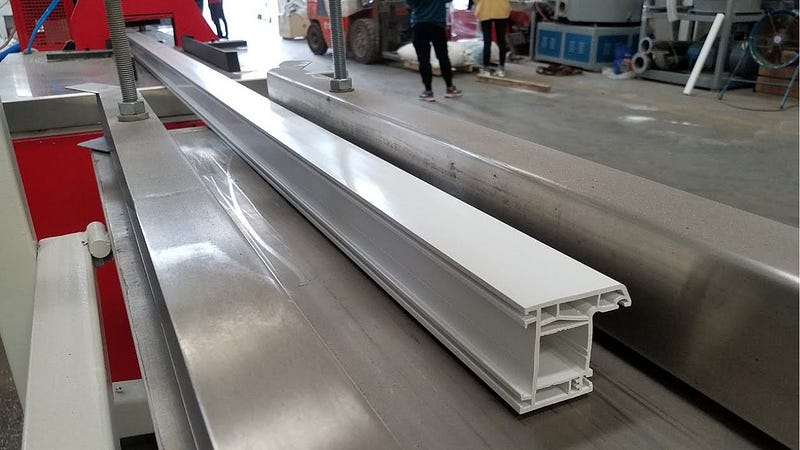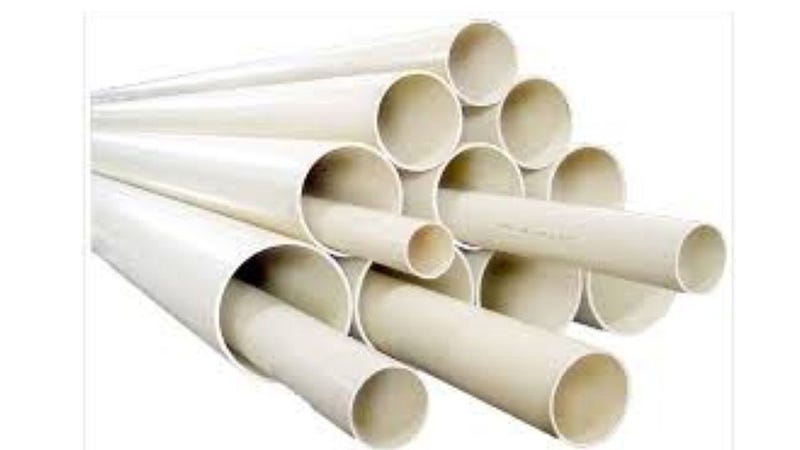WHY CPVC IS PERFECT FOR INDUSTRIAL WATER PROCESS PIPING?
Choosing the appropriate materials for piping systems is essential for guaranteeing effectiveness, dependability, and long-term success in the intricate and difficult field of industrial water treatment. One substance that sticks out in this sense is called CPVC, or chlorinated polyvinyl chloride. For good reason, this adaptable thermoplastic has become widely used in industrial applications. In this blog post, we’ll examine the advantages and special qualities of CPVC and discuss why it’s the ideal material for industrial water process piping.

1. Exceptional Corrosion Resistance
Industrial water processing environments are often aggressive, with corrosive elements that can wreak havoc on piping systems. CPVC boasts exceptional corrosion resistance, making it an ideal candidate for handling a variety of fluids, including those with high acidity or alkalinity levels. Unlike metal pipes that may corrode over time, CPVC maintains its structural integrity, ensuring a longer lifespan for your industrial water processing system.
2. High Temperature Tolerance
Industrial processes frequently involve the transportation of hot water and other fluids at elevated temperatures. CPVC is specifically designed to handle high temperatures, making it a reliable choice for applications where conventional PVC or other materials might fall short. With a maximum temperature rating of up to 200°F (93°C), CPVC ensures that your piping system remains robust and dependable even in demanding thermal conditions.
3. Excellent Chemical Resistance
In industrial settings, the variety of chemicals encountered can be extensive. CPVC’s resistance to a wide range of chemicals, including acids, bases, salts, and many industrial fluids, makes it an ideal material for piping systems in diverse industrial processes. This chemical resilience minimizes the risk of material degradation, ensuring the longevity and reliability of the entire water processing system.
4. Ease of Installation and Maintenance
CPVC is known for its ease of installation. Its lightweight nature makes handling and installation more straightforward compared to traditional materials like metal pipes. Additionally, CPVC’s solvent cement welding method allows for quick and efficient jointing, reducing installation time and costs. The material’s low friction coefficient also contributes to smoother fluid flow, optimizing the efficiency of your industrial water processing system.

5. Cost-Effective Solution
In any industrial operation, cost considerations play a pivotal role in decision-making. CPVC offers a cost-effective solution compared to some alternatives, like stainless steel or exotic alloys. Its lower material and installation costs, combined with its long-term durability and reduced maintenance requirements, make CPVC an economically sound choice for industrial water process piping.
Conclusion
When it comes to industrial water process piping, choosing the right material is paramount to success. CPVC’s unique combination of corrosion resistance, high-temperature tolerance, chemical resilience, ease of installation, and cost-effectiveness positions it as an excellent choice for industrial applications. By opting for CPVC piping systems, industries can ensure the reliability and longevity of their water processing infrastructure, contributing to overall operational efficiency and success.
For more information on high-quality CPVC solutions for industrial water process piping, visit www.dermakmixer.com. Invest in the future of your industrial operations with the durability and performance that CPVC brings to the table.


Comments
Post a Comment